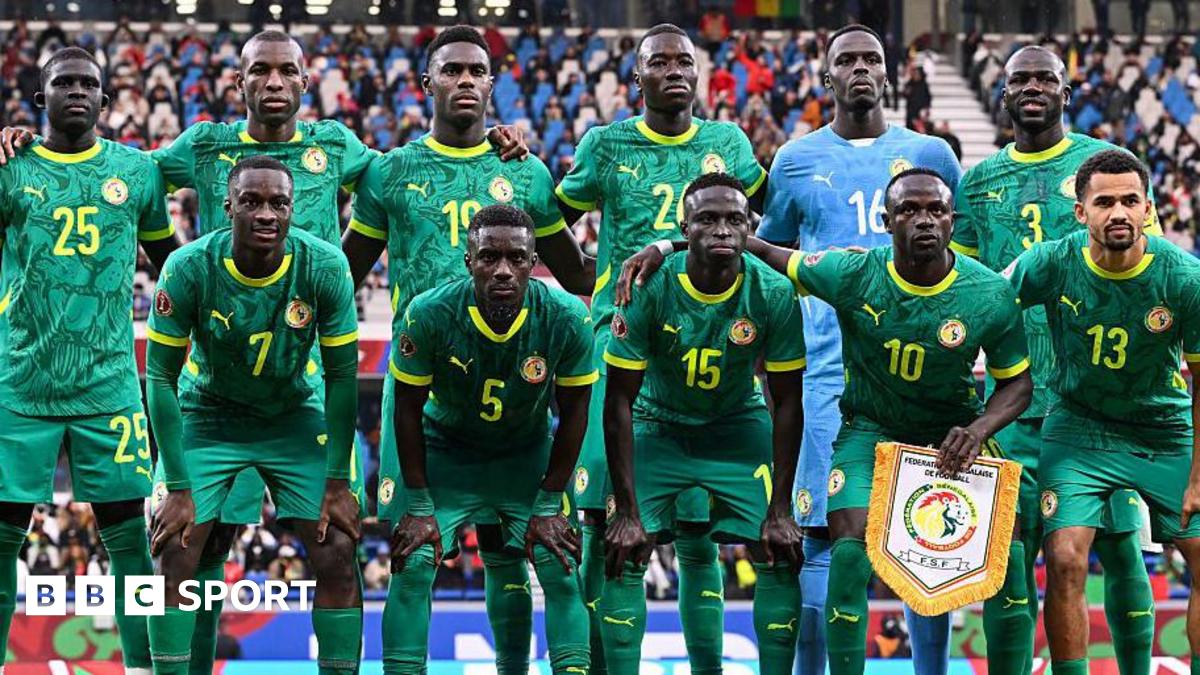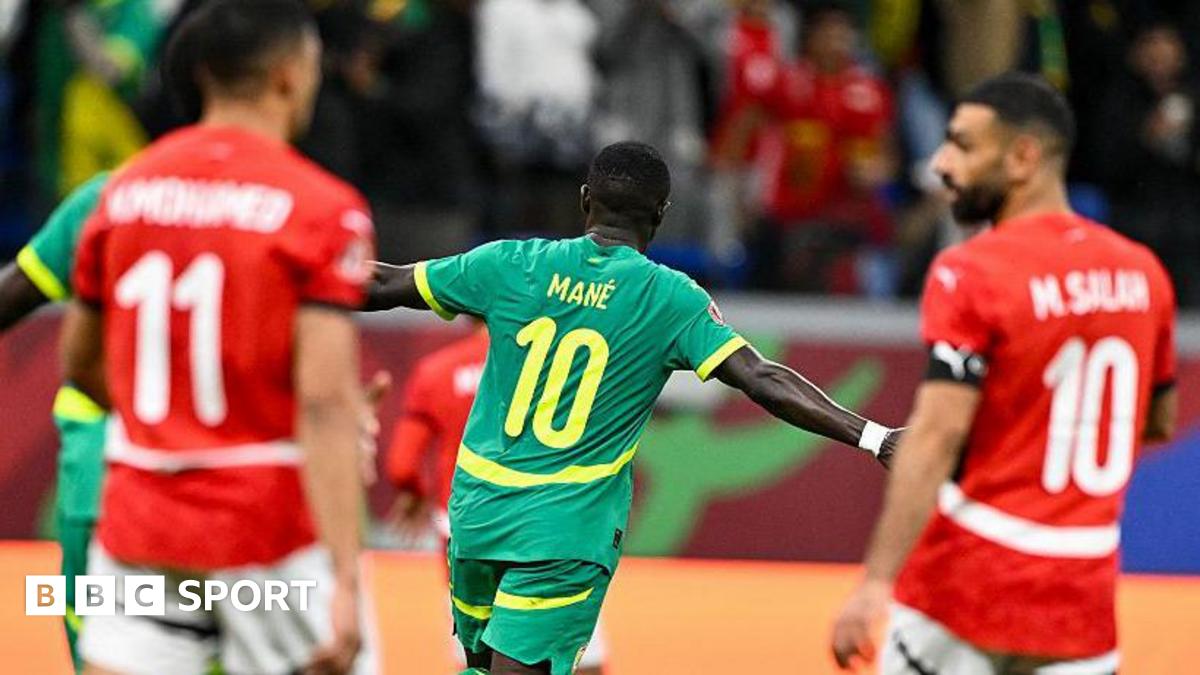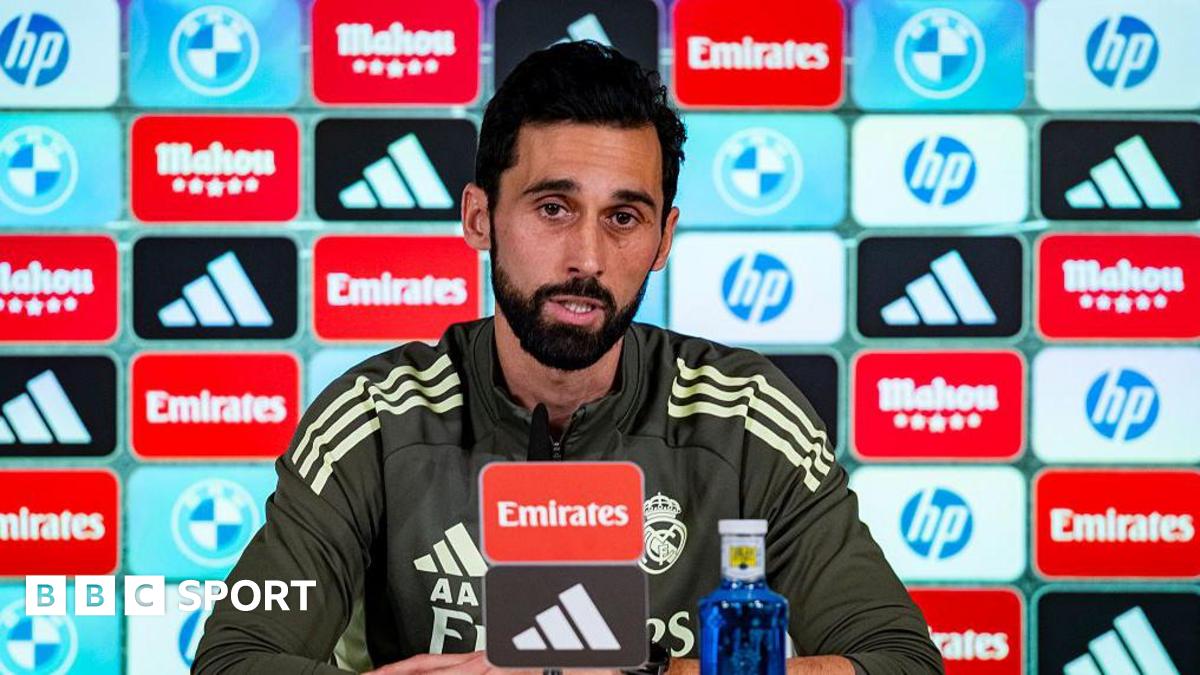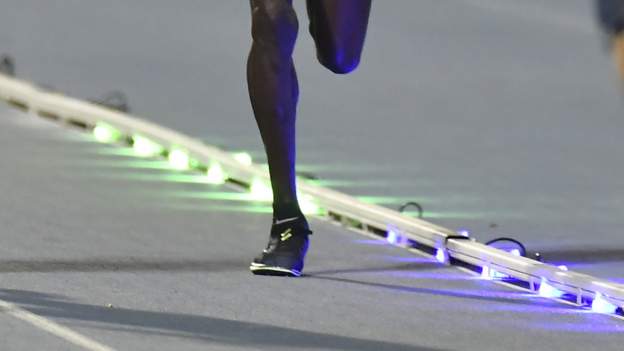In October two long distance world records were broken at a specially organised event making use of Wavelight technology to help pace the athletes.
At the meeting in Valencia Uganda’s Joshua Cheptegei smashed the men’s 10,000m world record as Ethiopia’s Letesenbet Gidey broke that of the women’s 5,000m.
However Kenya’s two-time World 5,000m Champion Hellen Obiri says the new system that helps athletes target a specific pace is an unfair advantage.
World Athletics says the new technology was named “after the Mexican wave because of the similar fluid motion of the lights, the system will be used along the rail (inside of the 400m track) in which the lights will flash at an assigned pace for selected races.
“The innovation has two values: one to enable the athletes to better target a specific pace or target time and, secondly, to add greater value to the spectator experience.”
Obiri feels that those athletes at events with Wavelight will have an unfair advantage over those who do not have access to it.
“Let’s give athletes equal opportunity, because maybe some athletes cannot go to the race,” she told BBC Sport Africa.
“With wave light technology you don’t need to train 100 percent because you know there is something which s going to boost you [during the race].
“It is like you are doping I can compare those two, to me they are the same.”
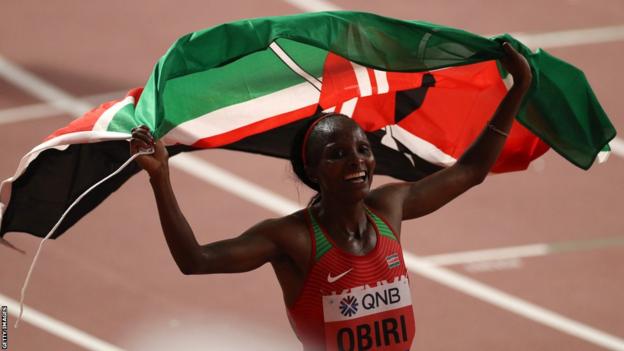
She also hinted that special events using the technology involving specific athletes targeting records is also an issue.
“I think it can be fair if all athletes are there not one or two – more like 12 athletes where anybody can break the world record,” she pointed out.
“So for me it is better than to put one athlete in a race. If it’s available, let it be available to all.”
The 31-year-old, who is the sixth fastest woman of all time over 5,000m, also says that the technology removes some of the human endeavour needed to break world records.
“[It would be better] We use pace setters because you know they reach a point then drop out so that you can push yourself but for wave light technology it can take you maybe up to the finish,”
“You can just watch, ‘I am inside the world record or outside world record,’ but when you are running alone, you can’t know whether you are inside or outside world record.”
“I can’t compare former world record holders like Dibaba, like Bekele and the current world recorders because for them they struggled to break the world record.
“And now, you don’t need to struggle because you have technology that can help you up to the end.”
She admitted that technology is part of the way sport develops but says that it needs to be thought about before it is introduced.
“For me it is good to see the new things coming but sometimes we need to work extra hard and not depend on other things. The way we used to do before,” she concluded.


